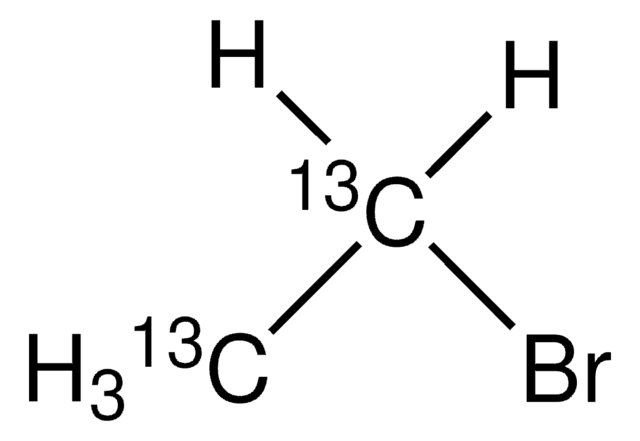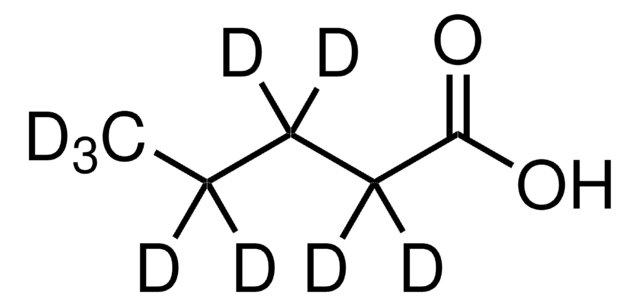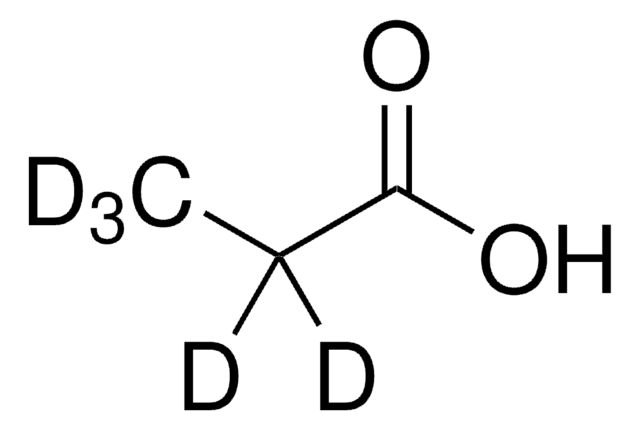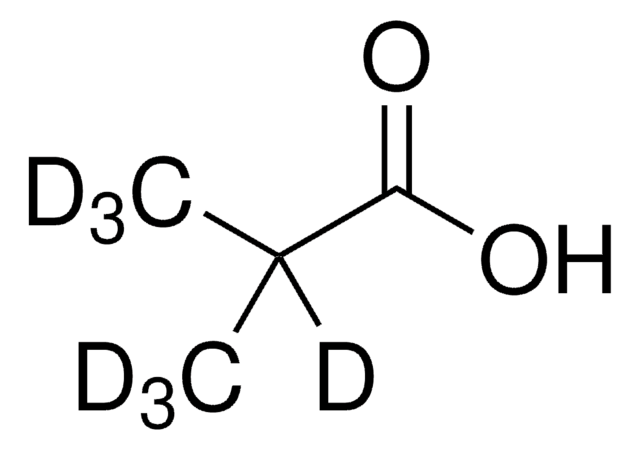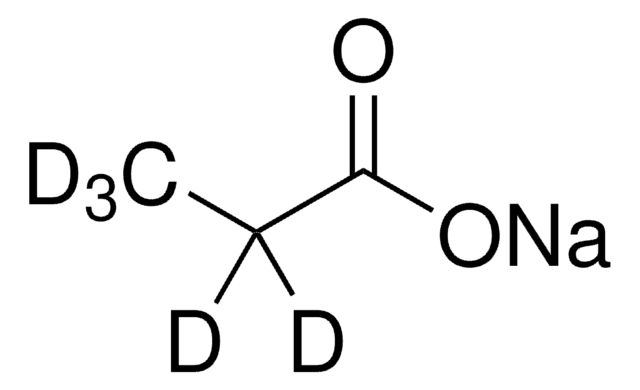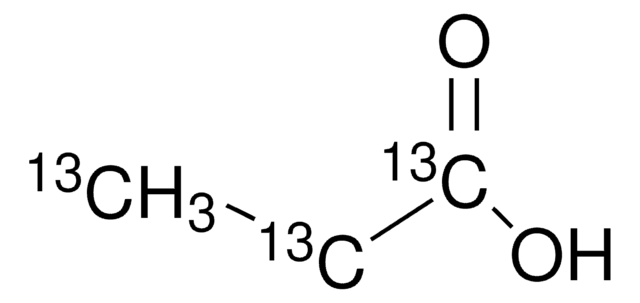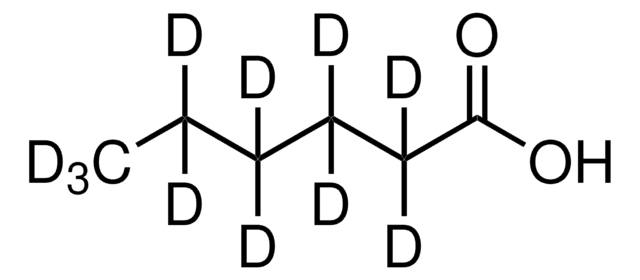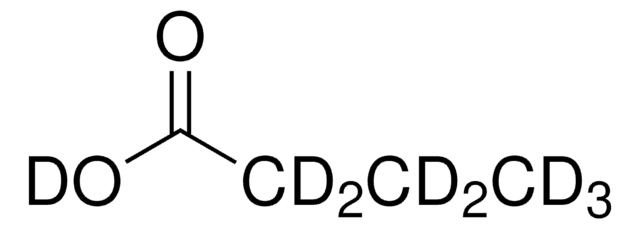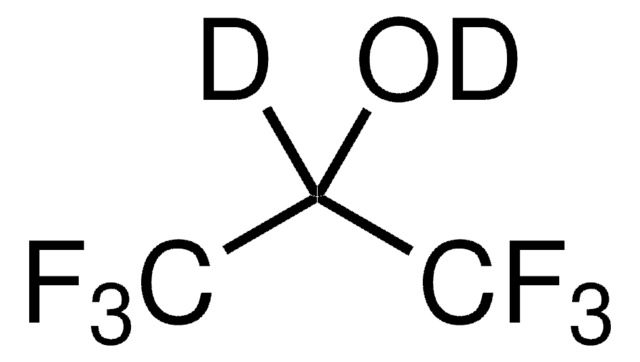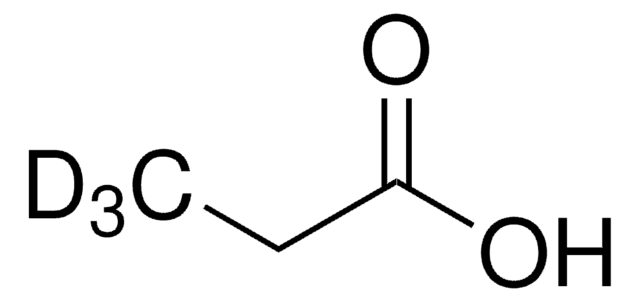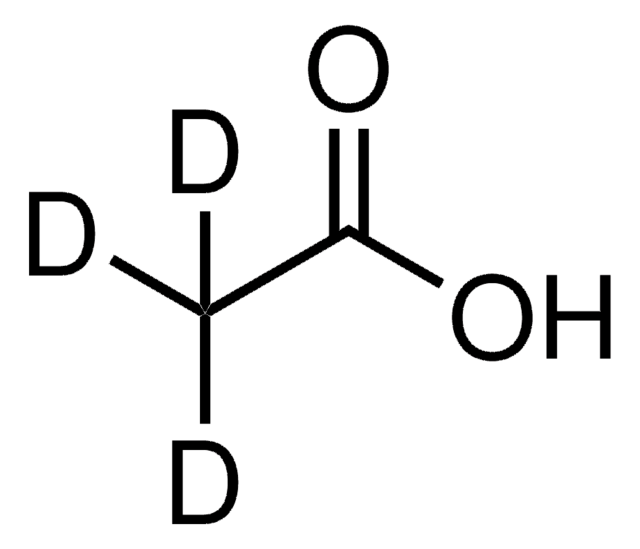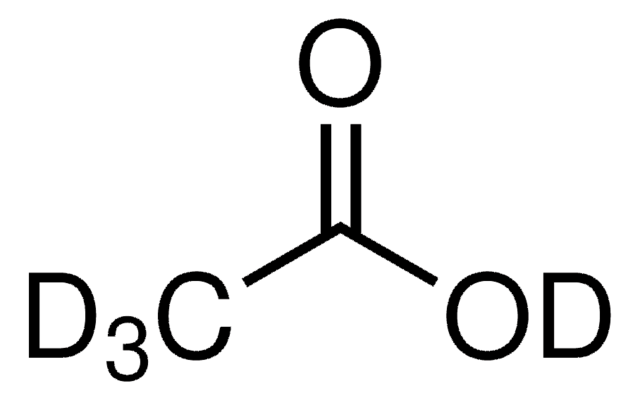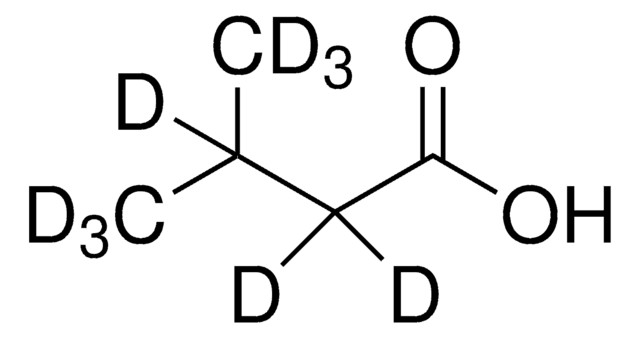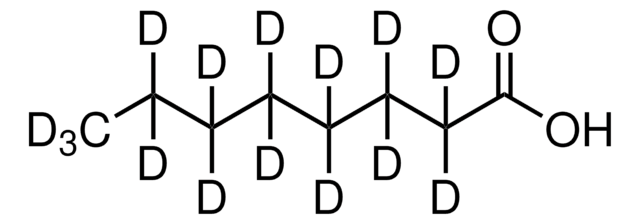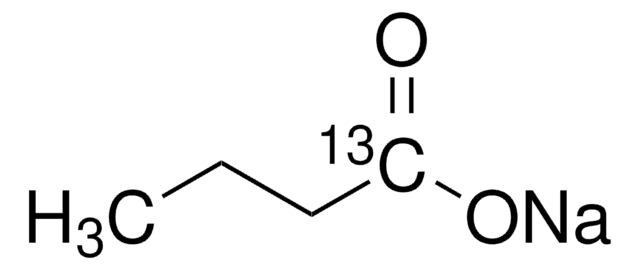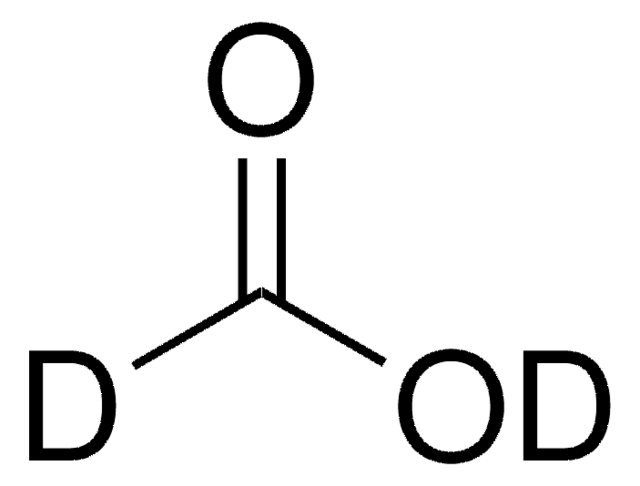488399
Butyric-d7 acid
≥98 atom % D, ≥98% (CP)
Synonym(s):
Butanoic-d7 acid
Sign Into View Organizational & Contract Pricing
All Photos(1)
About This Item
Linear Formula:
CD3(CD2)2CO2H
CAS Number:
Molecular Weight:
95.15
MDL number:
UNSPSC Code:
12352106
PubChem Substance ID:
NACRES:
NA.12
Recommended Products
isotopic purity
≥98 atom % D
Quality Level
Assay
≥98% (CP)
refractive index
n20/D 1.3969 (lit.)
bp
162 °C (lit.)
mp
-6--3 °C (lit.)
density
1.039 g/mL at 25 °C
mass shift
M+7
SMILES string
[2H]C([2H])([2H])C([2H])([2H])C([2H])([2H])C(O)=O
InChI
1S/C4H8O2/c1-2-3-4(5)6/h2-3H2,1H3,(H,5,6)/i1D3,2D2,3D2
InChI key
FERIUCNNQQJTOY-NCKGIQLSSA-N
Related Categories
Application
Butyric-d7 acid is a stable isotope and deuterated form of butyric acid, wherein all the alkyl protons are replaced by deuterium. It can be used as an internal standard in:
- The quantitative analysis of vegetable oils and fats using the LC-MS technique.
- The analysis of short-chain fatty acids (SCFAs) of renal samples of mice using the GC-MS technique.
Packaging
This product may be available from bulk stock and can be packaged on demand. For information on pricing, availability and packaging, please contact Stable Isotopes Customer Service.
Signal Word
Danger
Hazard Statements
Precautionary Statements
Hazard Classifications
Acute Tox. 4 Oral - Eye Dam. 1 - Skin Corr. 1B
Storage Class Code
8A - Combustible corrosive hazardous materials
WGK
WGK 1
Flash Point(F)
161.6 °F - closed cup
Flash Point(C)
72 °C - closed cup
Choose from one of the most recent versions:
Already Own This Product?
Find documentation for the products that you have recently purchased in the Document Library.
Customers Also Viewed
Determination of short chain carboxylic acids in vegetable oils and fats using ion exclusion chromatography electrospray ionization mass spectrometry
Viidanoja J
Journal of Chromatography A, 1383, 96-103 (2015)
Daisuke Mikami et al.
Biochimica et biophysica acta. Molecular and cell biology of lipids, 1865(6), 158666-158666 (2020-02-18)
Short-chain fatty acids (SCFAs), including acetate, butyrate, and propionate, are produced when colonic bacteria in the human gastrointestinal tract ferment undigested fibers. Free fatty acid receptor 2 (FFA2) and FFA3 are G-protein-coupled receptors recently identified as SCFA receptors that may
Our team of scientists has experience in all areas of research including Life Science, Material Science, Chemical Synthesis, Chromatography, Analytical and many others.
Contact Technical Service